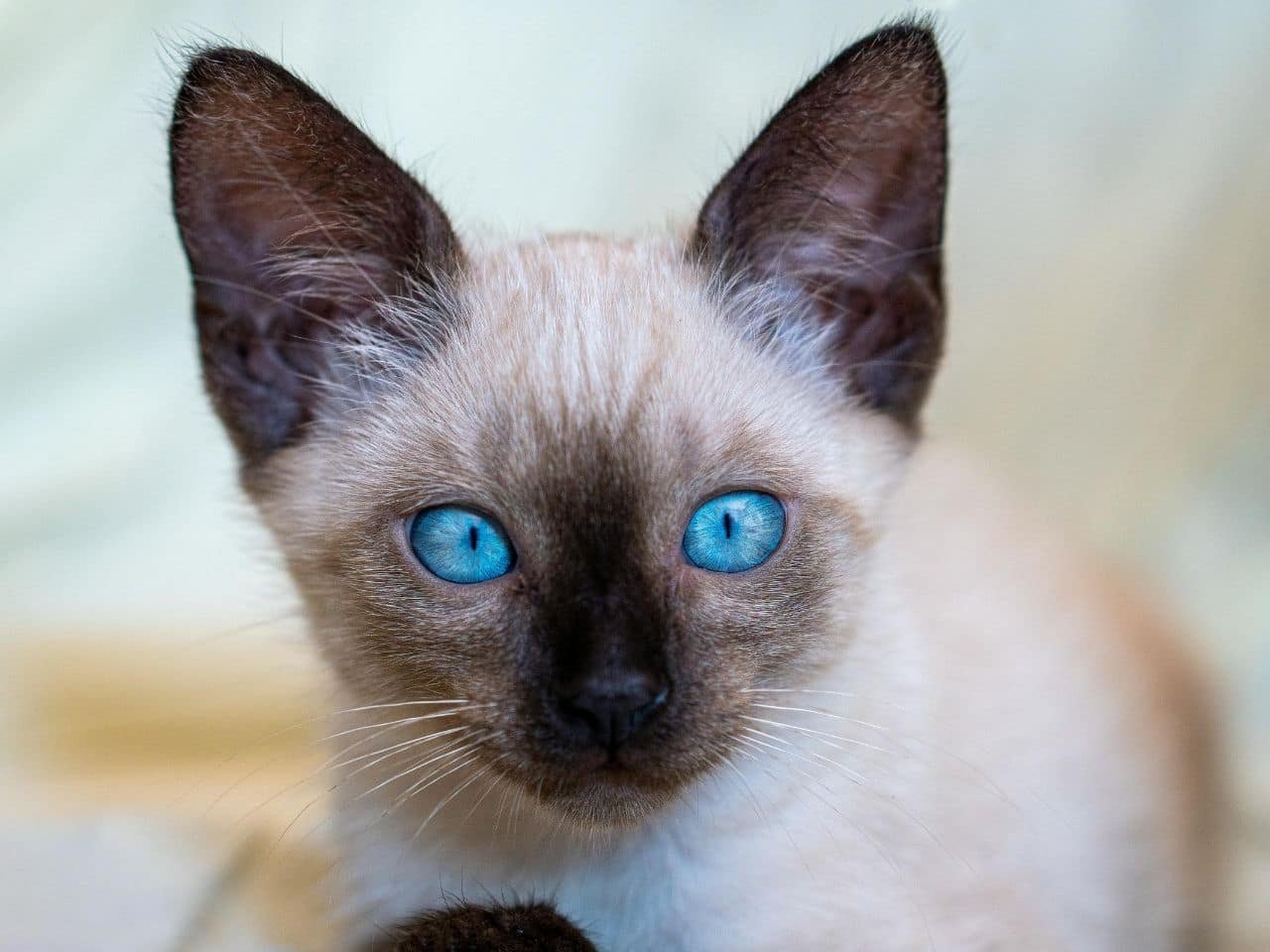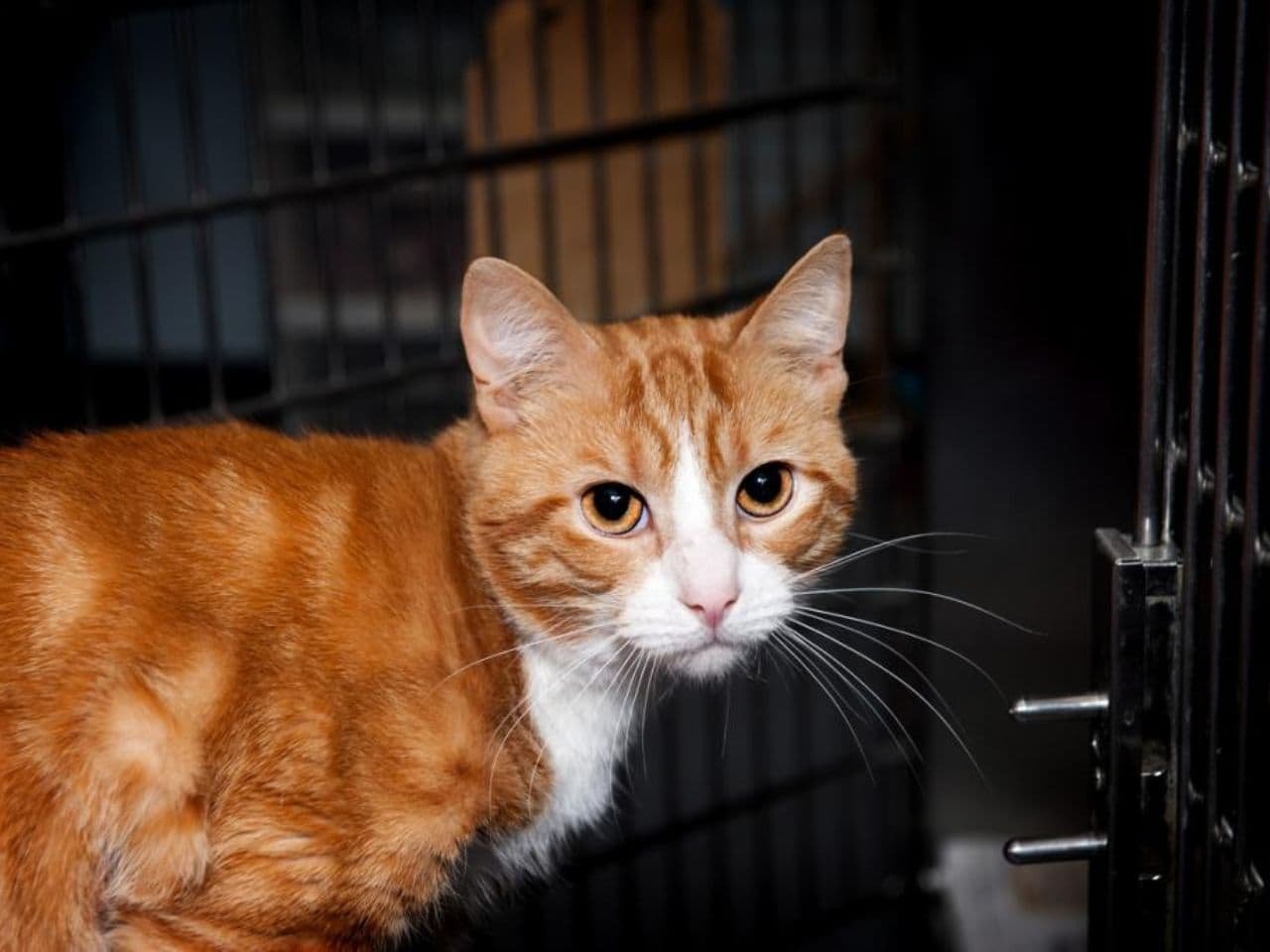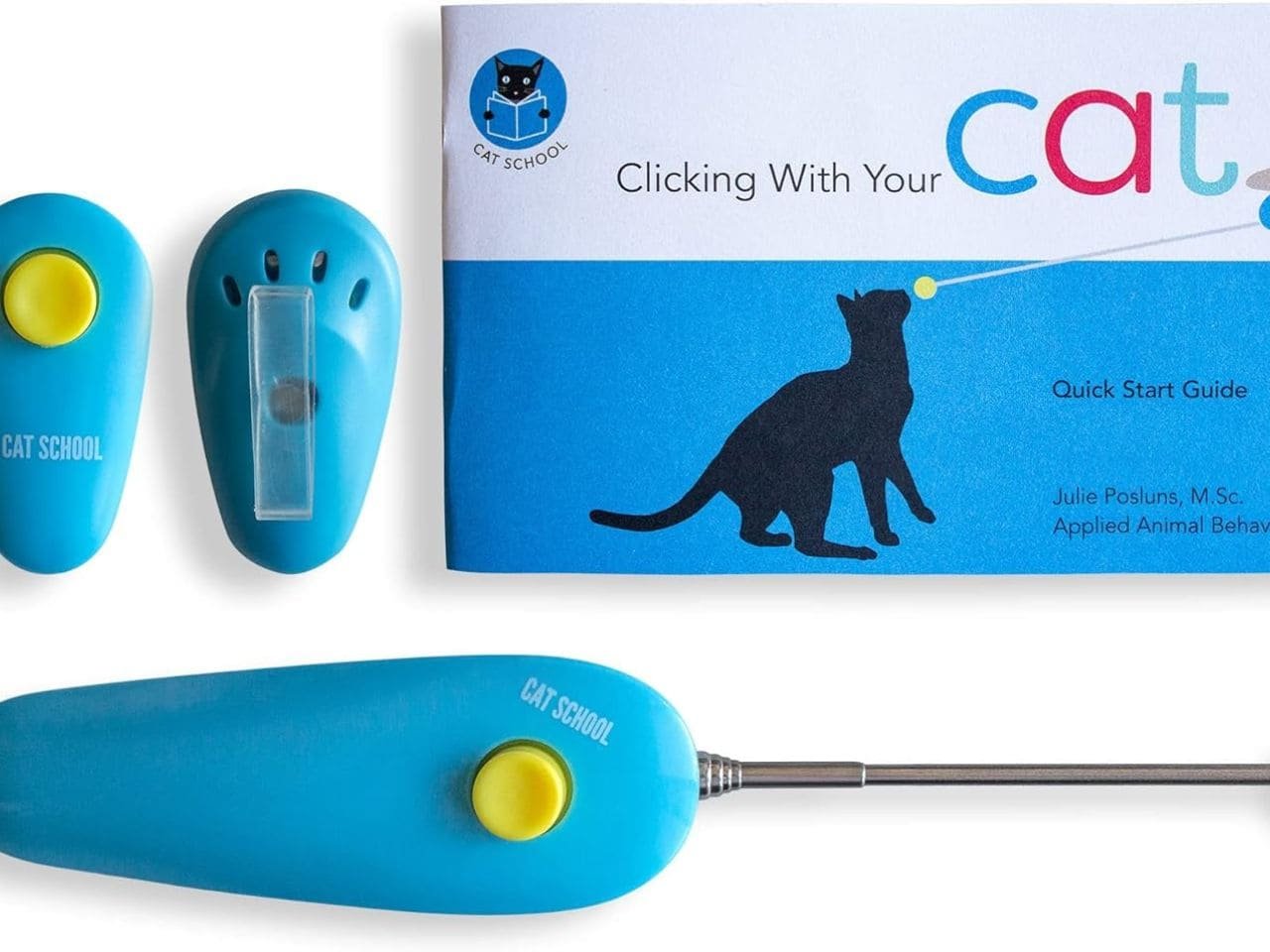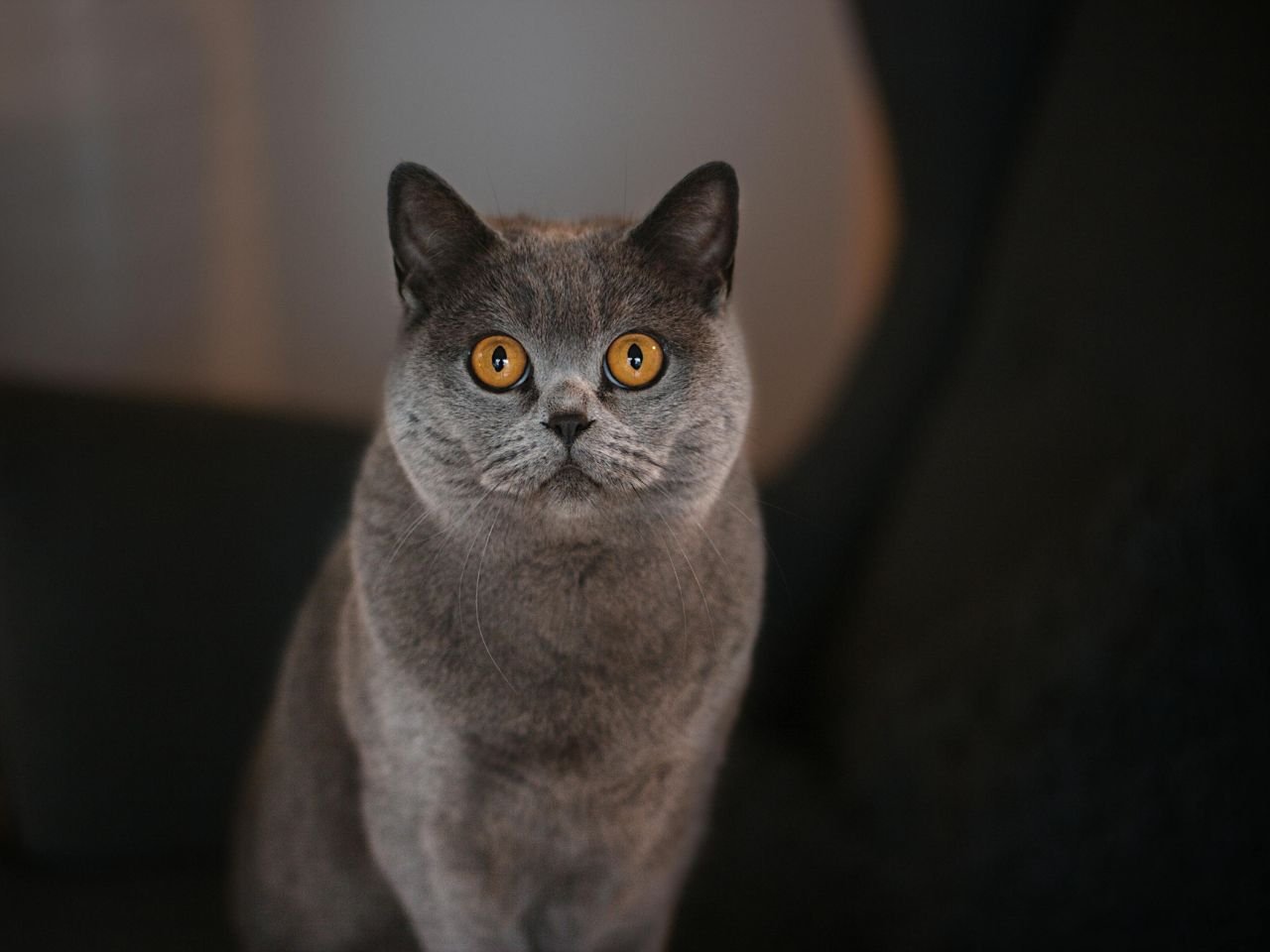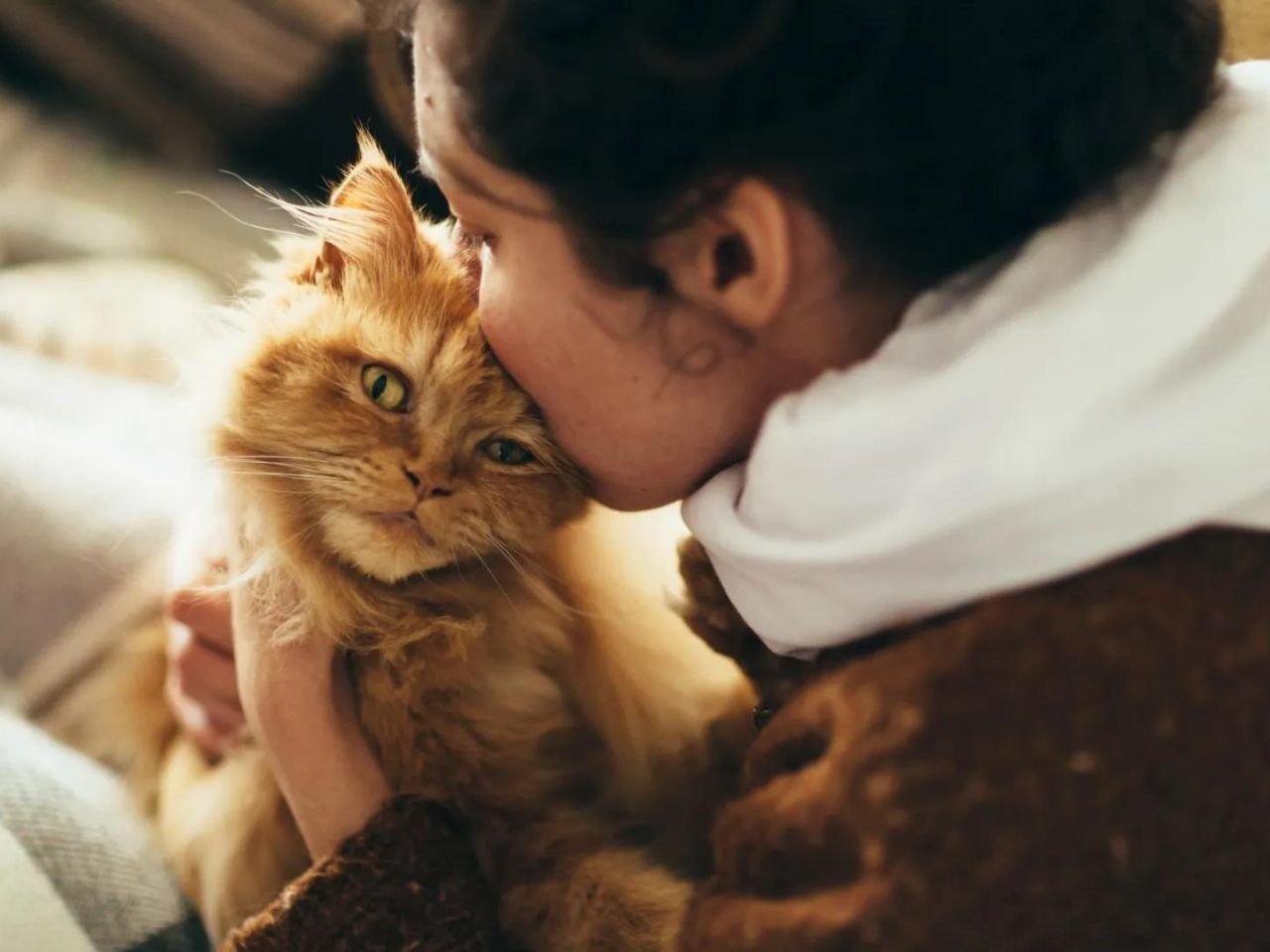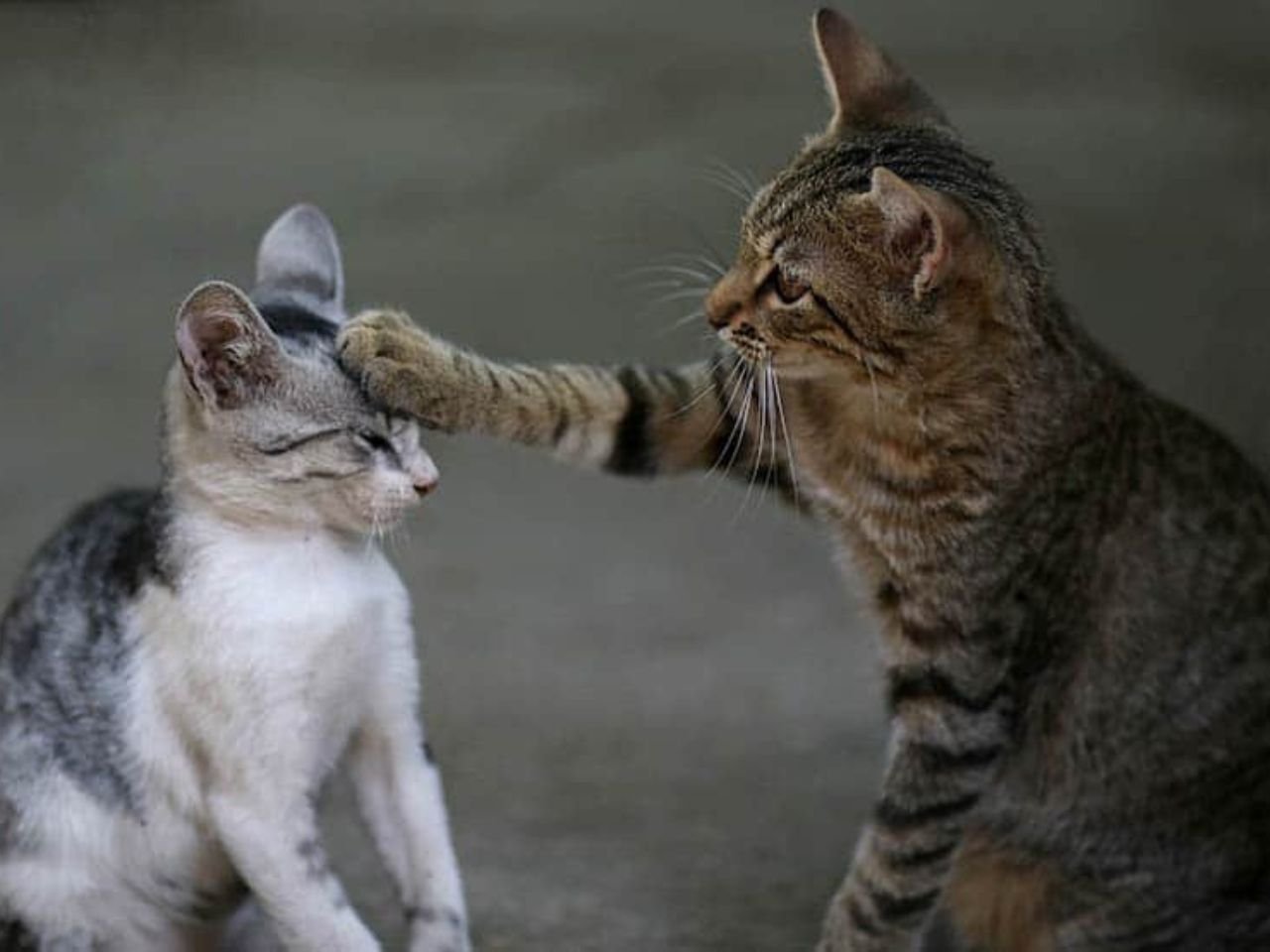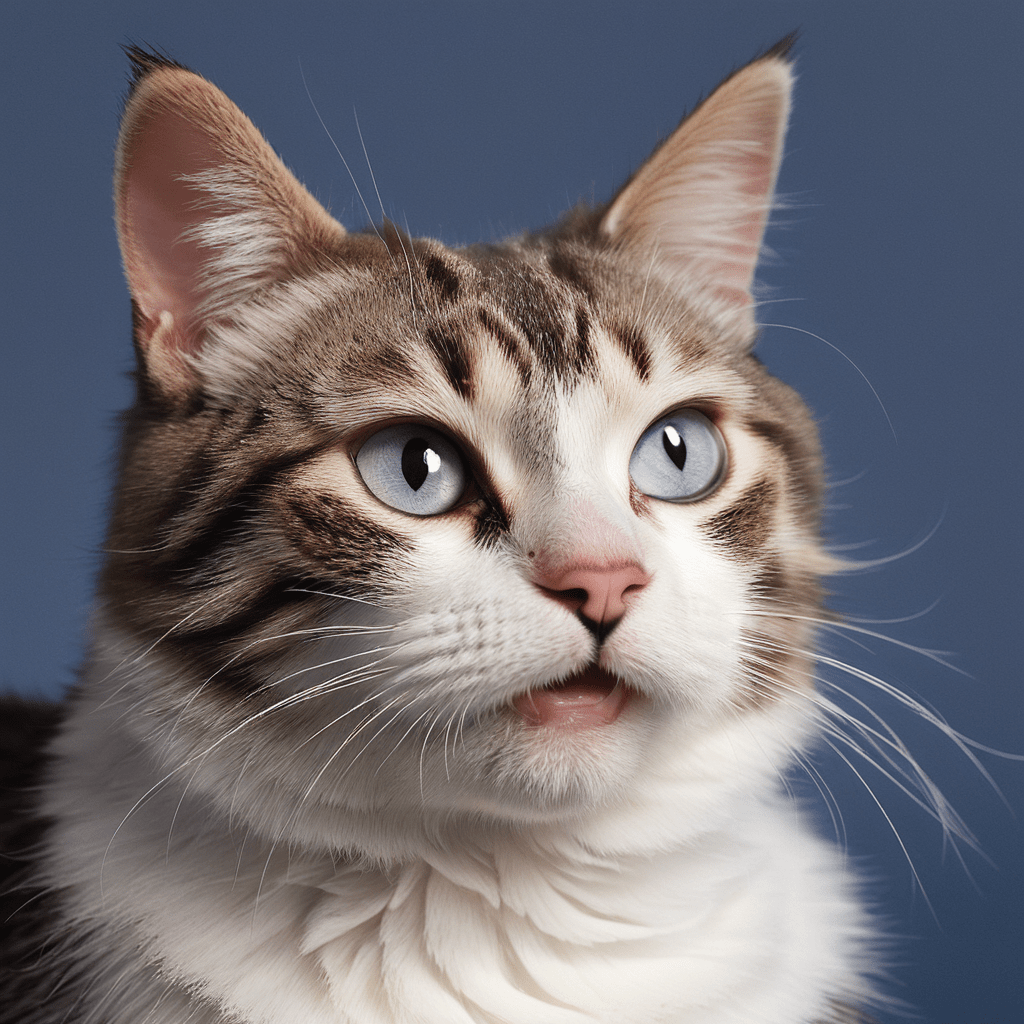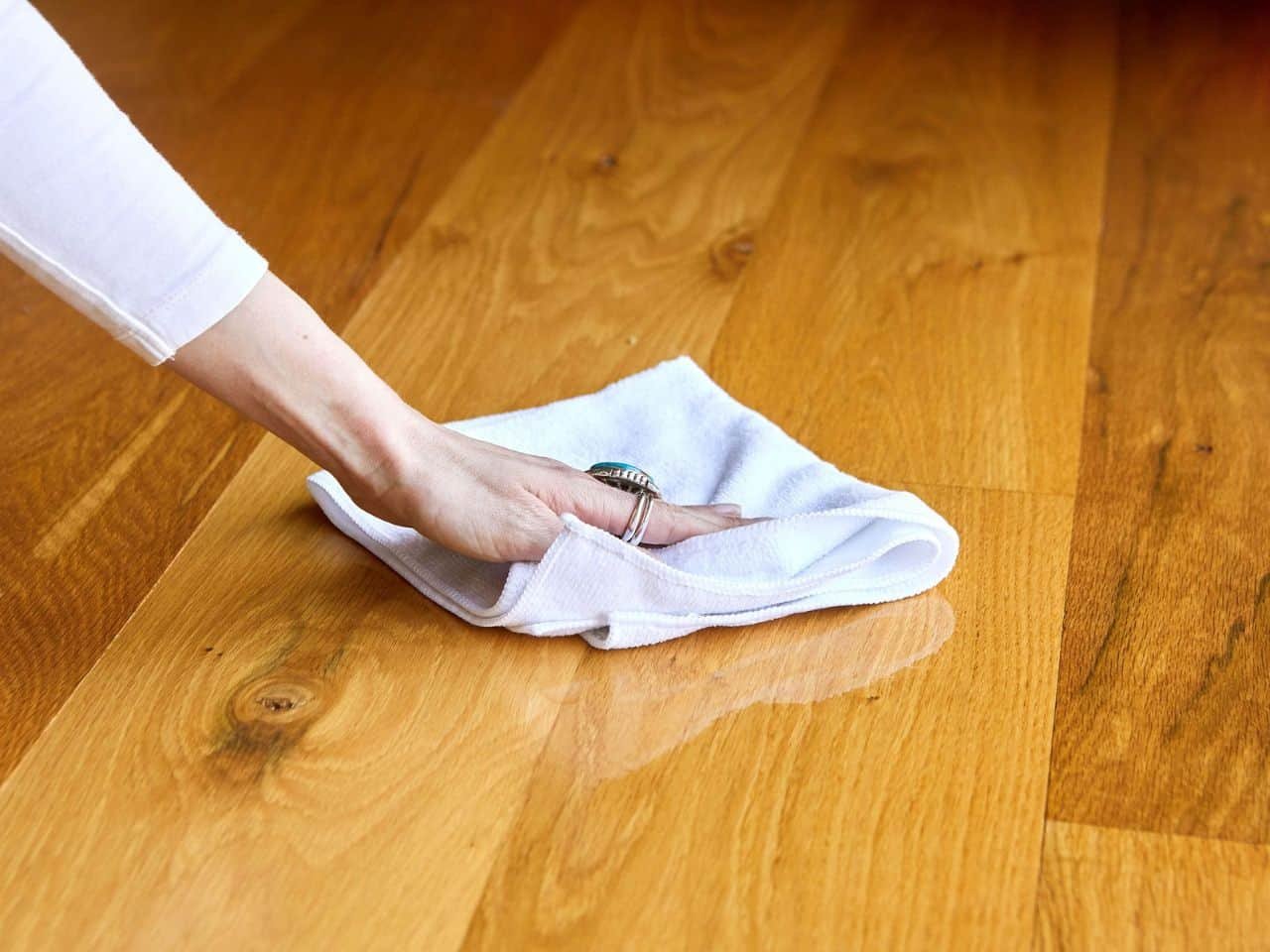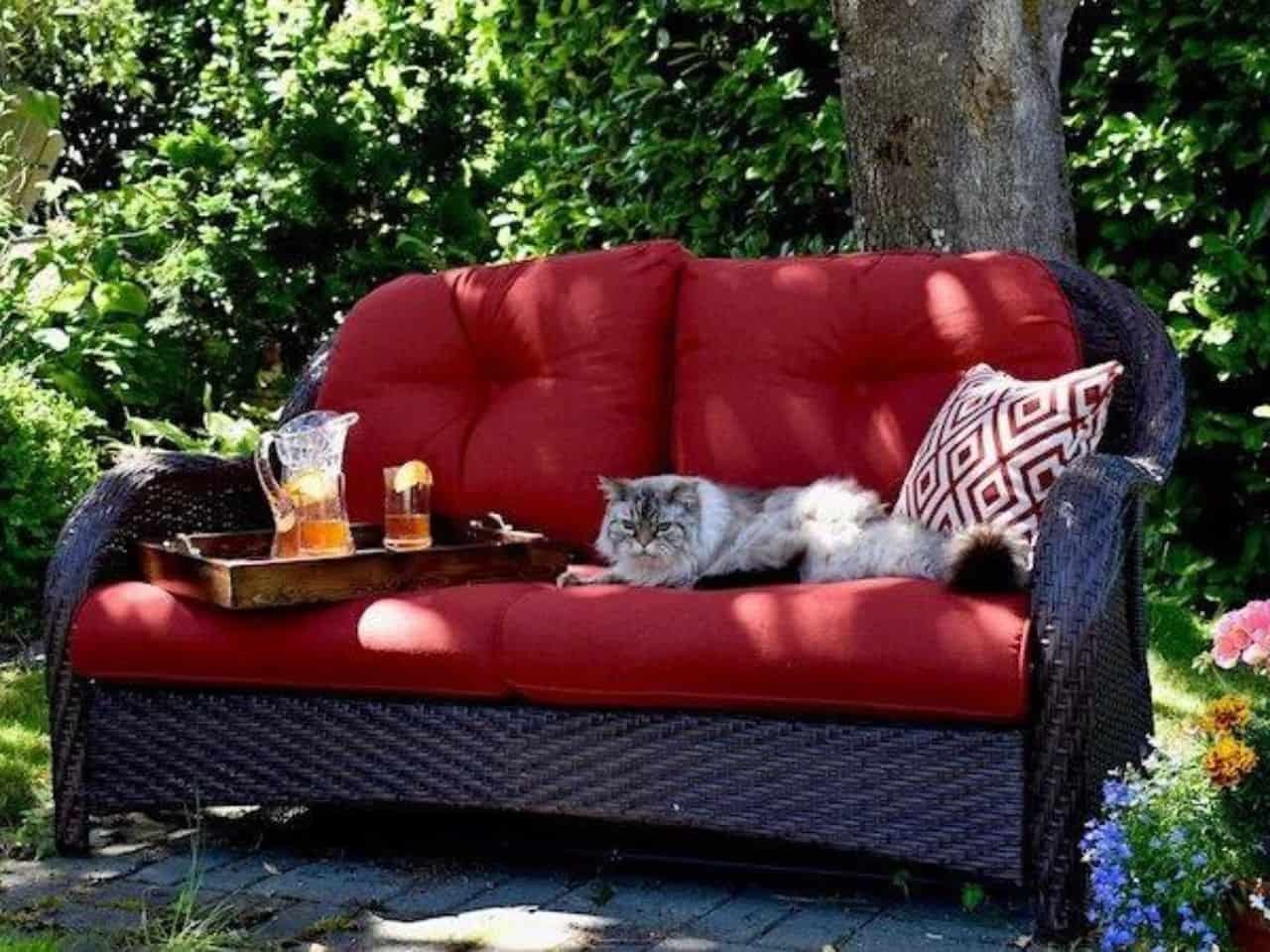Discover the reasons behind your feline’s behavior with our guide on “Why Does My Cat Meow After Eating.” Find out what it means and how to respond.
Your cat may meow after eating because it feels satisfied or is seeking more attention. This behavior can also indicate a health issue.
Cats often communicate through meowing, and this vocalization can have various meanings. After a meal, a cat might meow to express contentment or to get your attention for more food or affection. Sometimes, this behavior can signal discomfort or dental issues, especially if it’s unusual for your cat.
Observing your cat’s overall behavior and health is crucial to determine the exact cause. If the meowing is persistent or seems out of the ordinary, consulting a veterinarian is advisable. Understanding your cat’s meows can help improve their well-being and strengthen your bond.
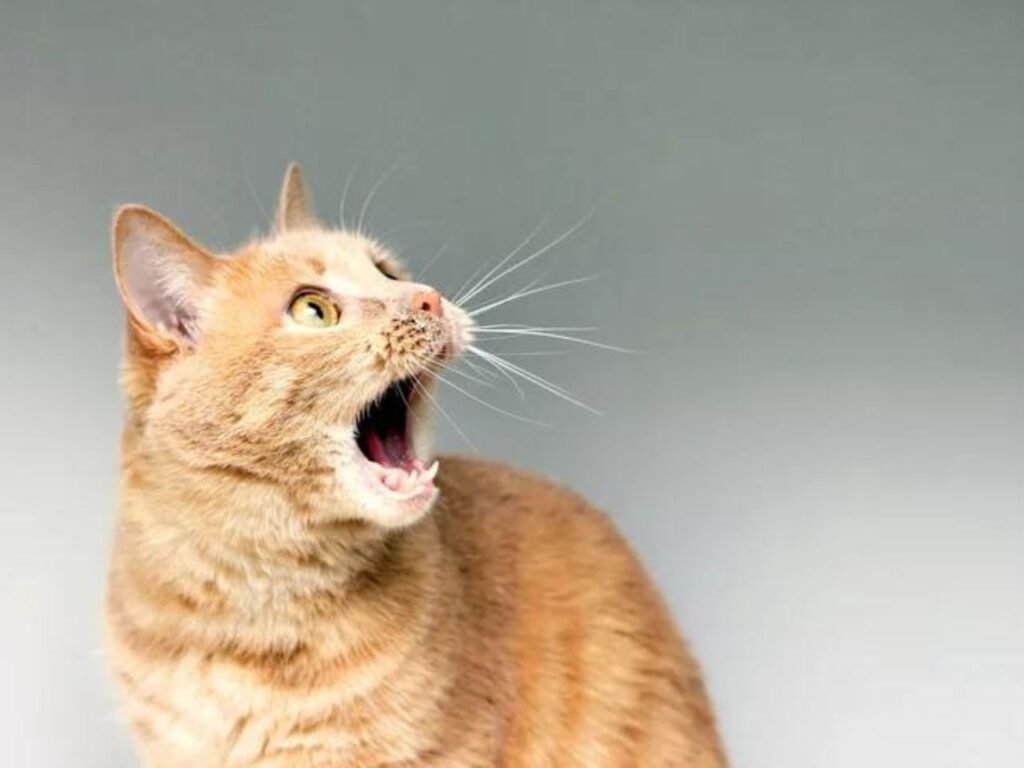
Possible Reasons For Meowing
Cats are known for their mysterious behaviors. One such behavior is meowing after eating. This can leave many cat owners puzzled. Understanding the possible reasons behind this can help in addressing your cat’s needs. Let’s explore why your cat might meow after eating and what it could mean.
Hunger Or Thirst
Cats might meow if they are still hungry or thirsty after eating. Sometimes, the portion given may not be enough. This can lead to them asking for more food. Cats can be very specific about their needs.
Here are some signs your cat might still be hungry or thirsty:
- Scratching their food bowl.
- Constantly looking at you or the food area.
- Drinking water right after eating.
Ensure your cat is getting the right amount of food. Different cats have different dietary requirements. A table can help you understand the general feeding guidelines:
| Cat Weight | Daily Food Intake |
|---|---|
| 5 lbs | 200 calories |
| 10 lbs | 300 calories |
| 15 lbs | 400 calories |
Make sure your cat has fresh water available all the time. This can reduce their meowing after meals. Addressing these needs can help in making your cat feel satisfied and content.
Seeking Attention
Cats may also meow after eating to seek attention. They are social animals and love interaction. Meowing can be a way for them to communicate and ask for your presence.
Signs that your cat is seeking attention include:
- Following you around the house.
- Rubbing against your legs.
- Purring loudly when you pet them.
Spend some quality time with your cat. Play with them or simply sit beside them. This can make them feel loved and secure. Understanding and responding to their needs can strengthen your bond. This can also reduce the frequency of their meowing after eating.
Incorporate playtime into their daily routine. This can help in addressing their need for attention. Try using toys that they love. This not only keeps them active but also happy. Attention-seeking behavior is common but manageable with proper care and love.
Health-related Causes
Have you ever wondered why your cat meows after eating? Cats use meowing to communicate. Sometimes, this behavior can be linked to health issues. Understanding these causes can help in keeping your cat healthy and happy. This blog post explores some health-related causes of this behavior.
Also Read Our Previous Article:
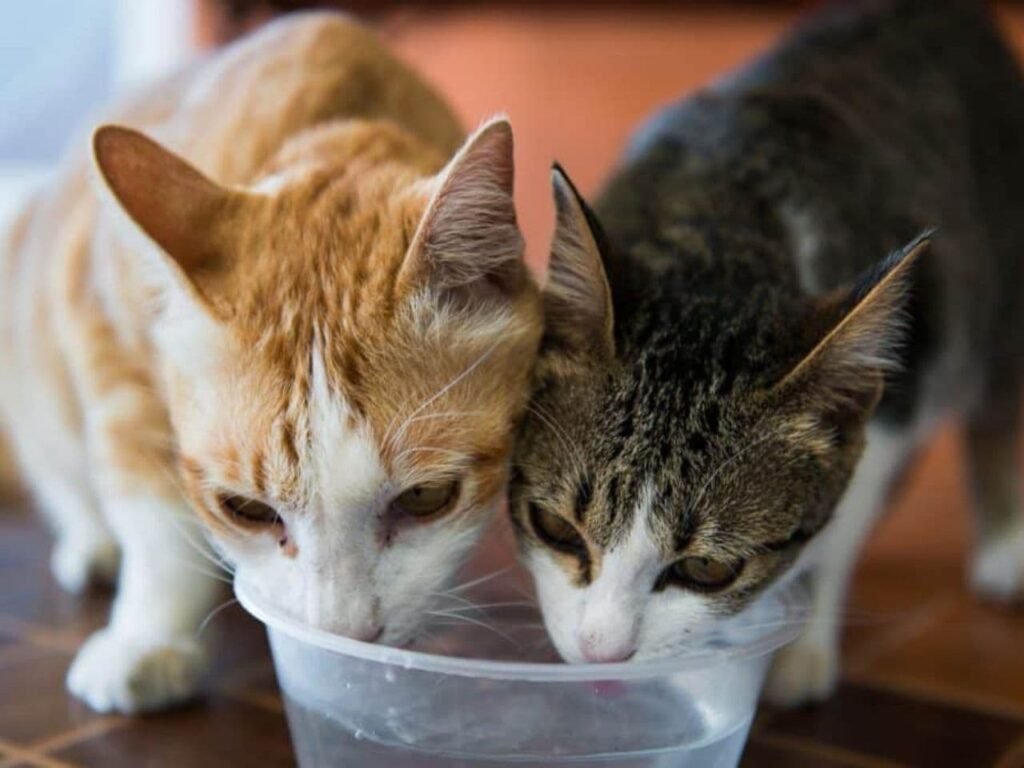
Digestive Discomfort
Cats can experience digestive discomfort after eating. This can make them meow. Some signs of digestive problems include vomiting, diarrhea, and bloating. These signs can indicate your cat is not feeling well. Cats may eat too quickly, which can cause stomach pain.
Other reasons for digestive discomfort can include:
- Food allergies
- Intolerance to certain ingredients
- Changes in diet
Feeding your cat smaller meals can help. This can reduce the chance of digestive issues. Make sure your cat’s food is of high quality. Avoid giving them table scraps or foods not meant for cats. If the problem persists, consult a vet.
Dental Issues
Dental issues can also cause a cat to meow after eating. If your cat has bad teeth or gums, eating can be painful. Some signs of dental problems include bad breath, drooling, and pawing at the mouth. Cats may also drop food while eating.
Here are some common dental problems in cats:
- Gingivitis
- Tooth decay
- Abscesses
Regular dental check-ups can help prevent these issues. Feeding your cat dry food can also help clean their teeth. Special dental treats are available that can help. If you notice any signs of dental issues, visit a vet for a thorough check-up. Read Why Does My Cat Sleep Pressed Up against Me?
Behavioral Considerations
Cats are fascinating creatures with unique behaviors that often leave their owners puzzled. One common question is, “Why does my cat meow after eating his food?” Understanding the reasons behind this behavior can help cat owners provide better care for their feline friends. Behavioral considerations play a significant role in deciphering this mystery. Cats communicate in various ways, and their meowing post-meal could be due to several reasons. Let’s explore some of these behavioral aspects.
Communication
Cats use meowing as a form of communication with their owners. After eating, your cat might meow to express satisfaction or contentment. This behavior can be a way of saying “thank you” for the meal. Cats may also meow to indicate that they are still hungry or that the food was especially good.
Some common reasons for post-meal meowing include:
- Seeking Attention: Cats might meow to get their owner’s attention after eating.
- Expressing Contentment: A satisfied cat may vocalize to show happiness.
- Requesting More Food: If the meal is small, your cat might meow for more.
In some cases, a cat’s meow after eating can be a learned behavior. If the cat receives positive attention or additional food after meowing, they might continue this behavior.
Habitual Behavior
Cats are creatures of habit, and their behaviors often follow a routine. If a cat starts meowing after meals, it might become a habitual action. This can be due to a variety of factors, including their environment and the consistency of their feeding schedule.
Some factors influencing habitual meowing include:
- Regular Feeding Times: Cats often anticipate their meals and may meow out of habit.
- Environmental Cues: Certain sounds or activities might trigger meowing.
- Owner’s Response: If owners consistently respond to post-meal meows, the cat may continue.
Observing your cat’s behavior and understanding their cues can help in managing and interpreting their meowing. If the meowing becomes excessive or seems unusual, consulting a veterinarian might be necessary to rule out any health issues.
Frequently Asked Questions About Why Does My Cat Meow After Eating
Why Does My Cat Meow Right After Eating?
Your cat might meow after eating to express contentment, seek attention, or indicate remaining hunger. It’s normal behavior.
Why Is My Cat Meowing Even Though She Has Food?
Your cat might be seeking attention, feeling lonely, experiencing stress, or having health issues. Check her environment and health.
Why Is My Cat Walking Around Yowling?
Your cat might be yowling due to hunger, stress, illness, or seeking attention. Consult a vet if it persists.
Why Does My Cat Go Crazy After Eating?
Cats may go crazy after eating due to a burst of energy. This behavior is often called the “zoomies. ” They might also feel playful or excited due to satisfaction from the meal.
Understanding why your cat meows after eating can improve your bond. It could be due to satisfaction or health issues. Monitor their behavior and consult a vet if needed. Paying attention to these cues ensures a happy, healthy feline friend.

